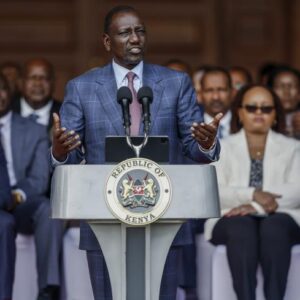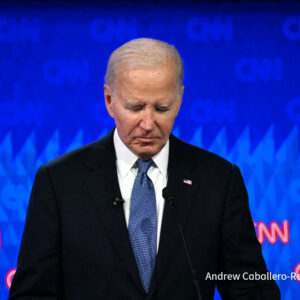The majority of spectators on site or who really followed this African Cup praised the quality of the Ivorian organization
It was to be held in the summer of 2023, but it was finally held – as is generally the case in Africa – from January 13 to February 11, 2024.
Five cities, six stadiums hosted the 34th African Cup of Nations.
The curtains fell, the lanterns went out, on Sunday February 11, with the coronation of Côte d’Ivoire against Nigeria.
But the greatest victory for the Ivorians is to have organized the most beautiful CAN.
First, the quality of the organization…
Well before the start of the competition, all the lights were green for this African Cup, as the host country had pulled out all the stops to enhance the splendor of the event, to achieve the CAN of hospitality.
Côte d’Ivoire has invested massively, almost €1.6 billion, a large part of which in infrastructure. Expenditure estimated at 60.7% of the country’s GDP according to the French Ministry of the Economy.
A major challenge for this country of nearly 30 million inhabitants (27.48 million according to the World Bank in 2021).
The greatest victory of the Ivorians is to have organized the most beautiful CAN.
The Ivorian State had taken on the challenge of showing that it was capable of organizing major events, while respecting the best international standards. A way of showing the world that the political, economic, social and human tragedy experienced twelve years ago (3,000 deaths) was only a distant memory and that it had now become a sporting hub, economically and politically stable.
This is what we were able to see throughout this CAN, the atmosphere in the stadiums, in the Fan zones, on social networks… The majority of people present on site or who really followed this African Cup have praised the quality of the Ivorian organization.
There were obviously ticketing problems, particularly for the opening ceremony and the first matches of the competition, but once this issue was resolved, the organizers were almost flawless until the beautiful and sober closing ceremony featuring the legend Alpha Blondy and the famous “Coup du Marteau”, which became the anthem of this African Cup.
Then, the quality of the show…
We saw everything in this African Cup of Nations: goals, surprises, reversals of the situation, play, ambition, emotions… we were never bored with this CAN. On the contrary, we enjoyed ourselves from start to finish. With 118 goals in 52 matches, CAN 2024 is the most prolific in history. The previous record (108 goals), recorded in Egypt in 2019, has largely exploded.
The Ivorian State had taken on the challenge of showing that it was capable of organizing major events, while respecting the best international standards.
This beautiful spectacle was made possible by the quality of the pitches, the quality of the refereeing, the level of the players, the evolution of the “small nations”… all the clichés about African football were shattered in the space of one competition.
Yes, African football is evolving in the right direction and we saw it in this CAN. Which pushed Sébastien Desabre to declare: “this is not the CAN of surprises, but that of work”.
Difficult to prove him wrong, because the nice surprises of this competition, Equatorial Guinea, Cape Verde, Mauritania, Angola, Guinea… and even to a lesser extent the Democratic Republic of Congo and South Africa South, are mainly the result of the efforts of recent years.
The success of South Africa, for example, whose goalkeeper Ronwen Williams’ exploits have exploded in the face of the world, is the fruit of the evolution of club football currently on the continent.
For its return to the last four (24 years later) and to secure this beautiful third place, the Bafana Bafana team has the particularity of being made up of almost 90% of players playing in the national championship, and even for the majority in the same club, Mamelodi Sundowns.
Finally, the champion’s journey…
Given among the favorites of the competition before the opening whistle, the Elephants would very quickly lose this status.
First with a first defeat against Nigeria (0-1), then with this slap received from Equatorial Guinea (0-4). The image of Jean Louis Gasset clutching his head in both hands at this disappointment had become the symbol of Ivorian impotence. Third in its group with three small points and a largely unfavorable goal differential, the organizing country was on the verge of elimination from the group stages. A fear set in, then, over the CAN, because if the disaster were to be confirmed, it would inevitably have serious consequences on the rest of the competition, in particular on the attendance in the stadiums. Ultimately, it was Morocco’s victory over Zambia that allowed Seko Fofana’s teammates to qualify for the round of 16 – as being, it must be said, the worst of the best third-placed teams.
But what is not overemphasized is Mozambique’s contribution to this miracle. Trailing (0-2) against Ghana, the Mambas “the most dangerous snake in Africa” stung the Black Stars to snatch the equalizer in added time.
The image of Jean Louis Gasset clutching his head in both hands at this disappointment had become the symbol of Ivorian impotence.
Well helped, it must be said by the hand fault of the Ghanaian goalkeeper and captain, Richard Ofori, causing the corner which will lead to the equalizing goal. With this draw conceded, Kudus’ teammates, excellent in this tournament, finished 3rd with only two points and facilitated the Ivorian qualification, behind.
In the meantime, Jean Louis Gasset resigned.
The Ivorian Football Federation is desperately seeking to enlist Hervé Renard, coach of the French Women’s team, specialist in African football, winner of this African Cup with the Ivory Coast, in 2015. But the operation is complicated . None are found with the French Football Federation. After this failure, the reins of the team were entrusted to Ermese Faé (40 years old) and Guy Demel (42 years old), two former Ivorian internationals.
The first was one of Gasset’s deputies, the second was in charge of the hopes. He will start the competition as a Consultant at Canal + Africa and end it on the Elephants bench.
The team is qualified, thanks to the combination of favorable circumstances, but the worries have only just begun, because the upcoming opponent is none other than Senegal, reigning African champion, one of the best nations African players of the moment (if not the best), author of a brilliant performance in the first round (3 victories, 8 goals scored, only one goal conceded).
Third in its group with three small points and a largely unfavorable goal differential, the organizing country was on the verge of elimination from the group stages.
The Lions of Teranga moved forward with their certainties while the Elephants continued to swim in full doubts. Doubts confirmed from the start of the match, because the Senegalese opened the scoring very early. But the Ivorians managed to come back thanks to a late penalty from F. Kessié before winning on penalties. First feat!
Also read: Zidane, the magnificent
In the quarter-finals, the Ivorians face Mali in a match with challenges that go beyond the boundaries of sport. Because two conceptions of Africa will clash.
On the one hand, that of the Ivory Coast of Alassane Ouattara, very close to France; and on the other hand, that of Mali by Colonel Assimi Goïta, admirer of Thomas Sankara and ally of Russia. A beautiful opposition between “Françafrique” and “Pan-Africanism”, some would say.
The Eagles, in terms of collective expression, are one of the very best teams in the competition. And here again, the match starts in the worst way for the Elephants. Very quickly, they conceded a penalty, brilliantly stopped by Fofana, who was hardly impeccable in the first round.
They were quickly reduced to 10 following the logical expulsion of Odilon Kossounou, the Bayer Leverkusen defender. In the second period, outnumbered, they tried to hold out against the Malian attacks, but ended up conceding a splendid goal from a local son Nene Dorgelès (born in Ivory Coast to an Ivorian mother), shortly before the last fifteen minutes.
There, we say to ourselves that it’s over, that mass is said, because no one saw these Ivorians coming back. And yet, they will come back. The excellent Simon Adingra will equalize in the very last minutes before Oumar Diakité offers his team qualification in the last moments of extra time. Second feat!
The Eagles, in terms of collective expression, are one of the very best teams in the competition.
At this moment, we say to ourselves that nothing more can happen to them. And that’s what the sequel would confirm. Since this Ivorian team doesn’t do anything like everyone else, they have their two best matches of the tournament in the semi-final and final. It’s true that there were some thrills in the final, with the Nigerian opening against the run of play, but this meeting was generally controlled by the Ivorians. And because this CAN must play with our emotions until the end, it was necessary for the two decisive goals – in the semi-final and in the final, to be scored by Sébastien Haller, who, not long ago, was fighting against testicular cancer.
Like his country, he was at the gates of hell, and here they both are, in seventh heaven, in paradise. He’s got balls, this boy. Third feat!
A mind-blowing journey, at the end of an exhilarating scenario worthy of a Hollywood or Nollywood film. It’s hard to do better in terms of twists, turns, emotions…
Some try to make comparisons with Greece in 2004 or Portugal in 2016 at the Euro, but, honestly, we are on very different registers, if only in terms of emotions. Because, it must be remembered that Ivory Coast was at home, it was therefore in front of their audience that the Elephants experienced these surreal scenes.
Especially since 2006 and the Egyptian victory, no host country had managed to keep the African Cup at home. Logic would dictate that for the CAN of hospitality, history could repeat itself. Logic thwarted by the Ivorians who gave absolutely everything except the Cup. Fourth feat!
So, is this really the best CAN in history?
While not being a prisoner of the present time and while respecting the champions of yesterday, we must recognize that Ivory Coast has set the bar very high, too high.
It thus puts terrible pressure on the next organizers, starting with Morocco (2025). Morocco was widely applauded when its flag appeared on the giant screens of the Alassane Ouattara stadium. A flag carried in triumph by certain Elephants including the captain, Max-Alain Gradel… we all know why.
To return to the Ivorian organization, we are clearly facing an almost perfect picture.
This beautiful spectacle was made possible by the quality of the pitches, the quality of the refereeing, the level of the players, the evolution of the “small nations”… all the clichés about African football were overturned in the space of a competition.
Never, a sporting competition held s on the African continent had never been so unanimous. Not even, relatively speaking, the South African World Cup in 2010. That is to say, the major feat achieved by the Ivorians.
So, to remain cautious and respectful of the past, we will say that this is the CAN, the most successful in the recent history of this competition.
And to pay tribute to this spectacular month of football full of twists and turns that we have just experienced, we will say that it is one of the most exciting African Cups ever.
Also read: Opinion | Why should SPORT retain its MINISTRY?
A CAN which will go down in history and which already marks a decisive turning point in the history of African football.
Par Nathan Laguerre
Cover image: Ivory Coast lifts the 2024 Africa Cup of Nations trophy after its victory against Nigeria (2-1) at the Alassane Ouattara stadium in Abidjan, February 11, 2024. | © ISSOUF SANOGO / AFP
Keep in touch with AyiboPost via:
► Our channel Telegram : Click here
► Our Channel WhatsApp : Click here
► Our Community WhatsApp : Click here









